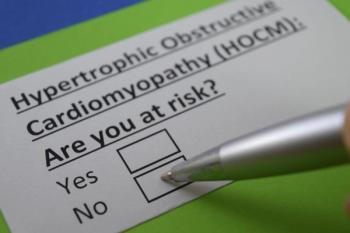Women with high-risk human papillomavirus (HPV) infection face an elevated risk of death from cardiovascular disease, according to new research published in the European Heart Journal.1 The risk of increased cardiovascular mortality was higher in women with obesity. Investigators said the findings indicate the need for vaccine strategies aimed at reducing high-risk HPV infections.
Cardiovascular diseases are the leading cause of death globally, with an estimated 17.9 million people dying each year, according to the World health Organization.2 Prior research has shown a possible association between atherosclerotic cardiovascular disease and HPV, but there has been limited data on the long-term outcomes of cardiovascular disease associated with high-risk HPV.
Key Takeaways
- New research published in the European Heart Journal reveals that women with high-risk human papillomavirus (HPV) infection face an elevated risk of death from cardiovascular disease.
- The association between high-risk HPV infection and atherosclerotic cardiovascular disease mortality was particularly pronounced in women with obesity.
- The study suggests the importance of comprehensive care for those with high-risk HPV, urging clinicians to monitor cardiovascular health, especially in individuals with additional risk factors like obesity.
“Despite remarkable advances in controlling well-known risk factors for heart disease—such as smoking, high cholesterol, hypertension, and diabetes—heart disease continues to be a major cause of death,” Seungho Ryu, an author on the study, said in a release.3 “Interestingly, these conventional risk factors don't explain all heart disease cases; about 20% occur in people who don't have these issues. This highlights the need to investigate other changeable risk factors. Our research focuses on examining the impact of HPV, particularly in relation to cardiovascular mortality, as a potential risk factor for heart disease.”
Investigators from the Kangbuk Samsung Hospital in the Republic of Korea conducted a study to examine the associations between high-risk HPV infection and cardiovascular disease mortality. Data was gathered from the Kangbuk Samsung Health Study, a retrospective cohort study that collected health examination data—including questionnaires, blood tests, and imaging exams—of adult patients from 2002 to 2010.
The study cohort included 163250 women ages 30 years or older at low risk for cardiovascular disease. HPV tests were performed as part of cervical cancer screenings and mortality data was collected from death certificates from the Korea National Statistic office. The mortality data were divided into 4 categories: ischaemic heart disease, ischaemic stroke, peripheral artery disease, and other cardiovascular diseases except for atherosclerotic cardiovascular disease.
READ MORE: Cardiovascular Care Inequities Lead to Worse Outcomes for Women With Atrial Fibrillation
Investigators found the prevalence rate of high-risk HPV was 9.2% and was positively associated with age, smoking status, alcohol intake, regular exercise, history of hypertension and diabetes, and blood pressure. During 1380953 person-years of follow-up, there were 134 cardiovascular disease deaths. High-risk HPV infection was significantly associated with an increased risk of atherosclerotic cardiovascular disease and ischaemic heart disease mortality.
However, there was no significant association observed between high-risk HPV infection and ischaemic stroke or other cardiovascular diseases except for atherosclerotic cardiovascular disease. Additionally, the link between high-risk HPV infection and atherosclerotic cardiovascular disease mortality was strongest in women with obesity.
Study limitations include a lack of information on the duration of exposure to high-risk HPV infection, that specific high-risk HPV genotypes were not identified, that the study population consisted of women with relatively high socioeconomic statuses and education levels, and the relatively small number of cardiovascular disease deaths in the study sample.
“This study highlights the importance of comprehensive care for patients with high-risk HPV,” said Hae Suk Cheong, lead author on the study, said in a release.3 “Clinicians should monitor cardiovascular health in patients with high-risk HPV, particularly those with obesity or other risk factors. It's important for people with high-risk HPV to be aware of the potential for both heart disease and cervical cancer risks. They should engage in regular health screenings and adopt a healthy lifestyle to mitigate their risk of cardiovascular disease.”
READ MORE: Cardiology Resource Center
References
1. Cheong HS, Chang Y, Kim Y, et al. Human papillomavirus infection and cardiovascular mortality: a cohort study, Eur Heart J. 2024; ehae020. https://doi.org/10.1093/eurheartj/ehae020
3. Women with HPV infection face higher risk of death from cardiovascular disease. News Release. European Society of Cardiology. February 6, 2024. Accessed February 8, 2024. https://www.eurekalert.org/news-releases/1033238
























